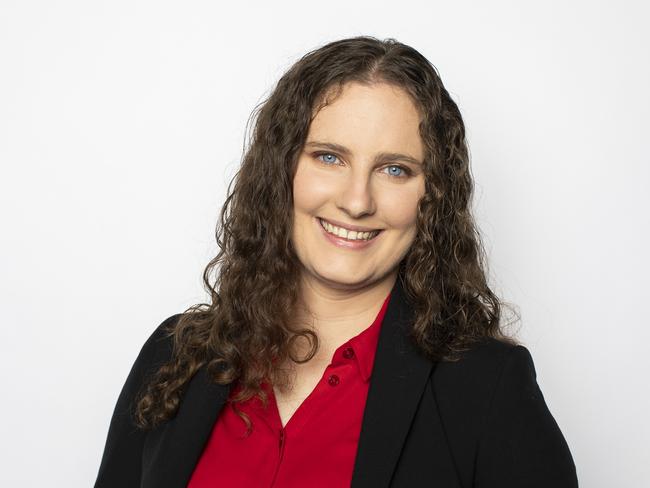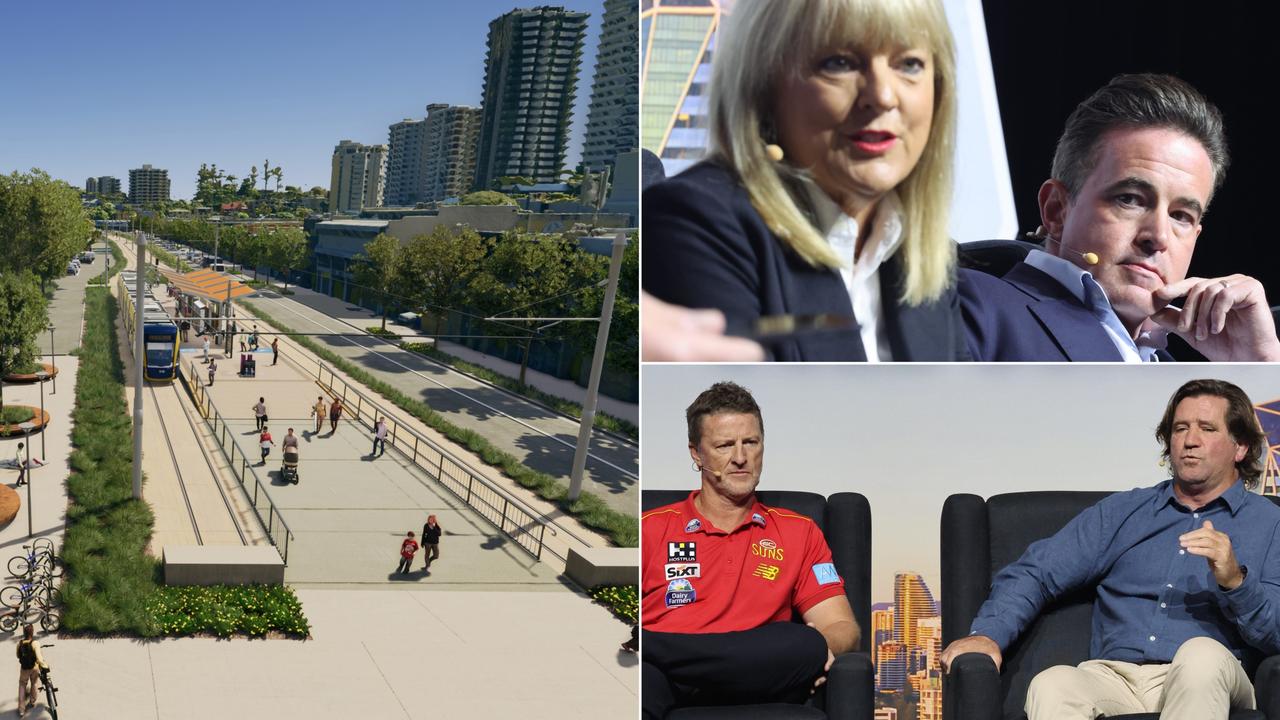Gold Coast brickies, plumbers, electricians: Why they’re hard to find
Small businesses on the Gold Coast have “exhausted” their savings and are facing their most difficult years, a leading business figure says.

Future Gold Coast
Don't miss out on the headlines from Future Gold Coast. Followed categories will be added to My News.
THE business community has learnt difficult lessons from the Commonwealth Games and will be better prepared for the 2032 Olympics, according to Gold Coast Chamber of Commerce President Martin Hall.
But first they need to recover from a tough two years of Covid-19 restrictions and border closures that had smashed confidence and left many struggling to keep their heads above water.
Mr Hall said there needed to be a focus on “local procurement” from Olympics organisers to ensure the event delivered more to Gold Coast operators who did reap major rewards in 2018.
“We learnt a lot of lessons through the Commonwealth Games,” Mr Hall said. “Sadly, they were mostly bad and indifferent.
“I believe that will help us in the long term, particularly with the Olympics.
“We know a lot more than we did back then.”
Mr Hall said the Gold Coast’s 66,000 small businesses faced a more immediate challenge in “emerging from the mist” of Covid lockdowns and restrictions.

The Chamber of Commerce and Industry Queensland’s September quarter Pulse Survey – which the Gold Coast chamber participates in – this week showed business confidence is on the floor following a difficult 18 months.
Close to 40 per cent of businesses surveyed said sales revenue had fallen in the September quarter, while expectations of sales revenue for the December quarter showed pessimism among business owners, with 41 per cent believing their total sales would remain unchanged.
“The big challenge for the next couple of years is going to be unlearning everything we’ve learnt in Covid,” Mr Hall said.
“That’s going to be everything from customer behaviours, right the way through to businesses’ risk appetite – to long-term ordering and the bulk-buying of products for example.”
Mr Hall said he believed it would be a number of years before business on the Gold Coast got back to normal.
“We’ve got to start welcoming back our international students and our international visitors, and also get used to Australians going overseas again,” he said.
“The tourism industry and all the supply chains really need to get used to that again and that’s going to take a couple of years.”

Small Business Association of Australia president Anne Nalder said many small businesses had “exhausted” their savings and faced a long road back to profitability.
“We’ve got to be careful we don’t talk down the economy but at the same time, I think the next couple of years are actually going to be the hardest,” Ms Nalder said.
“People’s savings are exhausted. We’re still very, very uncertain as to what governments are doing.
“... In business you’ve got to have a certain amount of certainty and stability.
“You can’t keep changing the goalposts every five minutes. It doesn’t work.”
CCIQ policy and advocacy general manager Amanda Rohan said many businesses were “just getting by” and were “desperate” for a good Christmas.
“For the most part businesses have only just been getting by for a year which we know a lack of confidence caused during snap lockdowns, restrictions and border closures was responsible for,” Ms Rohan said.
“Now they’re desperate to be able to make the most of the reopening in time for Christmas to try and recoup some of those losses.”
COAST FACING ‘CRITICAL’ TRADIE SHORTAGE
THE Gold Coast is facing a tradie shortage until at least 2023 as the building industry struggles to keep up with demand driven by a booming property market and high levels of interstate migration.
While the shortage will put further upward pressure on prices, it’s not necessarily bad news for the city’s economy.
Housing Industry Association (HIA) figures released this week show availability of tradies is worse than ever, declining from -0.53 to -0.69 in the September quarter. Any number below zero indicates a skills shortage.
HIA economist Angela Lillicrap said the industry was facing its greatest skills shortage since the association began reporting on the issue in 2003.
“The shortage will definitely cause either delays or cost increases to renovations, home building that sort of thing,” Ms Lillicrap said.
“In some ways that’s actually really good for economic activity in that it will spread it over more quarters instead of having just one really strong quarter.”

However, Ms Lillicrap cautioned the shortage was leading to rising prices in the construction sector.
“We’ve seen that the price of skilled trades has increased by 5.2 per cent over the year to September nationally. That’s as a result of these trades being in such high demand that they can afford to charge a bit more,” she said.
“It will definitely feed through to increased building costs. For people signing a contract today, to build in six to 12 months, that extra cost will be built in.”
The HIA Trades Report released this week showed that bricklayers are most in demand.
Gold Coast Bricklaying owner Evan Greatorex said it was increasingly difficult to find good staff.
“It’s a physically hard job and young kids just really aren’t interested,” he said. “There are too many options for them now.
“It’s affecting a lot of trades but bricklaying is right up there.”
Mr Greatorex, whose company is booked out until February, said the shortages had prompted him to scale back his work for commercial customers and instead focus on the residential market.
“It’s just getting a bit too hectic in the commercial industry. “A big reason for that is the lack of staff. If you commit to these big projects where you might need 15 men for three days, once you’re in a contract, if you can’t find them it’s no good.”
Despite the shortages, he said his company was doing well.
“We’re finding a bit of a supply-and-demand benefit to us now which has been long overdue in the industry.
“We’re able to put our rates up and pay our employees more money.”





